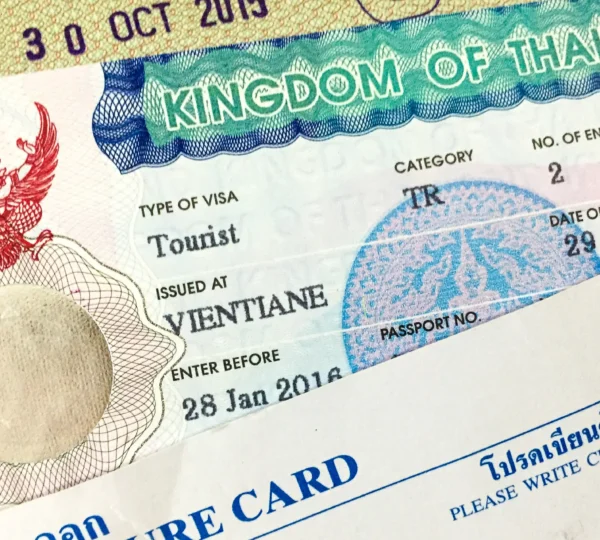
Thailand Real Estate: A Guide to Renting or Buying Property as a Foreigner
Thailand is a popular destination for expatriates, retirees, and investors due to its tropical climate, affordability, and strong tourism industry. Whether you’re looking to rent or buy property in Thailand, understanding the legal framework and market conditions is essential. This guide provides a detailed overview of the real estate process for foreigners in Thailand.
Renting Property in Thailand
Finding a Rental Property
There are several ways to find rental properties in Thailand:
- Online Portals – Websites like DDProperty, FazWaz, and Hipflat provide property listings.
- Real Estate Agents – Hiring a local agent can help navigate the market and negotiate leases.
- Local Listings & Word of Mouth – In some areas, rental opportunities may not be widely advertised online.
Lease Agreements & Requirements
- Most leases require a minimum contract of 6 months to 1 year.
- A security deposit (usually 2 months’ rent) and one month’s rent upfront are standard.
- Ensure the lease agreement includes:
- Rental price and payment terms
- Duration of the lease
- Maintenance responsibilities
- Utility payment terms
Average Rental Prices
Rental costs depend on the location:
- Bangkok: $400 – $2,000 USD per month (apartments & condos)
- Chiang Mai: $200 – $800 USD per month
- Phuket: $500 – $2,500 USD per month
- Pattaya: $300 – $1,500 USD per month
Buying Property in Thailand
Can Foreigners Own Property in Thailand?
Foreigners cannot own land in Thailand, but they can legally own condominiums under the 49% foreign ownership quota. Other ways to acquire property include:
- Buying a Condominium – Foreigners can buy condos as long as foreign ownership does not exceed 49% of the building.
- Leasehold Agreements – Foreigners can lease land for 30 years, renewable in some cases.
- Setting Up a Thai Company – A foreigner can own property through a Thai Limited Company (requires 51% Thai ownership).
- Investing in the Thailand Elite Visa Program – Large investments can grant long-term residence rights.
Steps to Buying Property in Thailand
1. Choose the Right Property
- Identify whether you’re purchasing for residence, rental income, or investment.
- Consider location, amenities, and market conditions.
2. Work with a Lawyer & Real Estate Agent
- A licensed real estate agent can help find properties.
- A property lawyer ensures due diligence is done on the title and ownership.
3. Verify Property Documents
- Check the Chanote title deed (full ownership title).
- Ensure there are no legal issues or encumbrances.
4. Transfer Funds from Abroad
- Thai law requires that foreign buyers remit funds from overseas in foreign currency.
- The bank will issue a Foreign Exchange Transaction Form (FET) for condo purchases.
5. Sign the Purchase Agreement
- Pay a reservation deposit (5-10%).
- Review the contract with a lawyer before signing.
6. Finalize the Sale
- Pay the balance and transfer the title at the Land Office.
- Register ownership under your name.
Thailand Real Estate:Costs of Buying Property
In addition to the property price, buyers should budget for:
- Transfer Fee: 2% of the registered value
- Stamp Duty: 0.5% of the registered value
- Withholding Tax: 1% of the assessed value (for individuals)
- Legal Fees: 1-2% of the purchase price
Mortgage Availability for Foreigners
Most Thai banks do not offer mortgages to foreigners, but some international banks and foreign branches may provide financing.
Key Considerations
Residency and Ownership
- Buying property does not grant Thai residency or a visa.
- Foreigners must obtain a visa separately (e.g., Thailand Elite Visa, Retirement Visa).
Legal Restrictions
- Foreigners cannot directly own land.
- Only condominiums under 49% foreign ownership can be purchased.
Thailand Real Estate: Best Cities for Real Estate Investment
- Bangkok – Business hub, strong rental market.
- Phuket – Tourism hotspot, high rental demand.
- Chiang Mai – Popular for retirees and digital nomads.
- Pattaya – Growing expat community and nightlife.
- Hua Hin – Beach town with a relaxed lifestyle.
Thailand Real Estate: Frequently Asked Questions (FAQ)
1. Can foreigners own land in Thailand?
No, but they can lease land for 30 years or purchase condominiums.
2. Can I get a mortgage in Thailand as a foreigner?
It is difficult, but some international banks and financial institutions offer limited mortgage options.
3. Is property expensive in Thailand?
Prices vary:
- Bangkok condos: $2,000 – $8,000 per sqm
- Phuket luxury villas: $300,000 – $3 million
- Chiang Mai apartments: $50,000 – $300,000
4. Does buying property in Thailand grant residency?
No, property ownership does not grant automatic residency.
5. Are there taxes on property ownership?
Yes, including transfer fees, stamp duty, and withholding tax.
Conclusion
Thailand offers excellent opportunities for foreigners looking to rent or invest in property, especially in Bangkok, Phuket, and Chiang Mai. However, land ownership is restricted, and buyers must be aware of legal limitations. Conducting due diligence, working with a lawyer, and ensuring compliance with Thai property laws is essential before making a purchase.
Our Directory
Use our database to find visa facilitators, real estate agents, and recommended professionals. You will also have the ability to book a time to meet with our expats on the ground. These are individuals just like you who have gone through the immigration process and have been living in your desired country or city.
Recent Posts
Comprehensive Step-by-Step Guide to Obtaining Your Visa In Mexico
Buying Your First Business in France
All Categories
- Argentina
- Australia
- Austria
- Bahamas
- Bali
- Belize
- Brazil
- Chile
- Colombia
- Costa Rica
- Czech Republic
- Denmark
- Dominican Republic
- Ecuador
- El Salvador
- Fiji
- France
- Germany
- Greece
- Hungary
- India
- Ireland
- Jamaica
- Japan
- Malaysia
- Mexico
- Netherlands
- New Zealand
- Norway
- Panama
- Peru
- Philippines
- Portugal
- Singapore
- South Korea
- Spain
- Sweden
- Switzerland
- Thailand
- UAE
- Uncategorized
- United Kingdom
- Uruguay
- Vietnam



